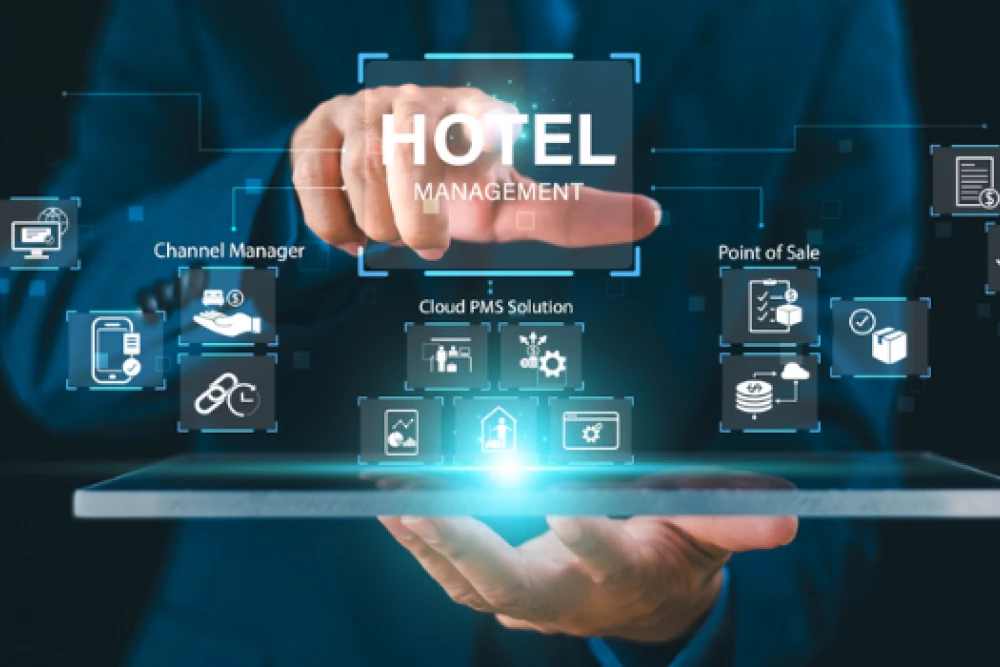Consulting
The step‑by‑step guide to opening your hotel

Choosing your hotel creation model
When opening a hotel, you can build your own property, convert an existing building, or take over an existing hotel business.
Building is costly but lets you design and customize according to your vision and business model. Beyond construction/renovation—which boosts real-estate value—you control the concept, decor, etc.
Acquiring an existing hotel is easier, though less flexible, and offers advantages: an existing reputation and customer base reduces launch risk. But a poor legacy reputation can hurt your future property.
Once you decide on your creation model, choose your management structure.
Independent management means the person (or group) financing the project also operates it. You keep full control and can make decisions quickly, shaping the guest experience to your vision. But funding may be harder, and lack of expertise can lead to issues like cost control, pricing, or sales practices.
Franchise management brings the clout of an established brand (Hôtel F1, Ibis, Novotel, B&B, Campanile, etc.), along with reservation systems and loyal guests. Training and support are included. However, fees can be high and operating rules strict—covering decor, marketing, rates, staffing. Performance expectations can be demanding. Attractive on the surface, this path can be deceiving for novices.
Management contracts delegate operations to an experienced operator. Their know-how spans marketing and hotel management. Owners can focus on asset value while outsourcing day-to-day tasks. Costs can be high—compare carefully with franchising. Choose your operator wisely to avoid misaligned visions. With the right partner and relevant experience, this is often the most promising path for a first venture.
Human and material needs
Understanding staffing and equipment needs at opening is essential—they represent major investments. A specialized hospitality consultancy can help.
On the people side, plan for:
- Housekeeping: headcount depends on number of rooms;
- Food & beverage: depends on your infrastructure (bar, restaurant, banquet hall);
- Front office: receptionists, porters, bell staff, concierges;
- Maintenance: electricians, technicians, plumbers, etc.
Hotel success hinges on guest experience, which depends greatly on staff friendliness and professionalism. Don’t cut corners on hiring.
On equipment, a non-exhaustive list:
- Guest rooms: bedding, decor, furniture, in-room tech such as Chromecast solutions, etc.
- Front office: workstations, software (PMS), payment terminals, etc.
- Public areas: restrooms, decor, security (CCTV).
- Back-of-house: offices, lockers, housekeeping and kitchen equipment.
Other specific fit-outs depend on your concept.
Create your business plan
A robust business plan sets your numbers and goals and is critical to attract investors.
Start with a market study: assess your location, competition, footfall, and other factors to prove financial viability.
Then build the financials, at minimum:
- Capex budget
- Financing plan
- Income statement
- Forecasts
Additionally, include:
- Action plan
- Marketing and communication strategy
- Targets and KPIs
Once finalized, you're ready to present to investors and lenders.
Which legal structure?
Your legal form depends on goals and finances. Main options include:
Sole proprietorship: run by one person, who is liable for all debts and obligations. Easy to create with no minimum capital, but offers no liability shield.
SARL (limited liability company): provides limited liability up to contributions. Minimum capital €1 and simple registration.
SAS (simplified joint-stock company): suited to medium/large projects. Flexible governance. Variable capital; more complex formalities.
SA (public limited company): for large projects requiring major investment. Shareholder liability limited to contributions. Minimum capital €37,000; most complex formalities.
Technology choices you shouldn’t neglect
Hospitality's digital shift is far from over. Technology is transforming day-to-day operations, and guests increasingly expect modern, connected experiences.
While selecting your PMS can come later, other choices—cabling (type/quality/quantity), network paths, rack location, interconnections—must be made early.
Many hoteliers plan ultra-fast Wi-Fi or the latest in-room tech (smart TVs, Chromecast), only to be told their network can’t support it. Installing proper cabling at the start is straightforward; retrofitting after paint and decor is costly (drilling walls, opening ceilings). Same story for telephony, background music, etc.
In short: get expert support as early as possible—these technical choices are difficult and expensive to fix later. UTH can partner with you from day one, acting as your technical advisor and single point of contact with other vendors, attending site meetings, and handling acceptance to ensure on-time, best-practice delivery.
Mandatory formalities
Once these steps are covered, tackle the required formalities.
First, declare your future establishment to the prefecture to obtain authorization to open.
For new builds, conversions, or renovations, obtain a building permit from the town hall.
If you plan to serve alcohol, you must hold the appropriate license:
- License 2: beverages in group 2 (< 3°)
- License 3 (“restaurant license”): beverages in group 3 (< 18°)
- License 4: allows all alcohol in France, including outside meal service
MAG.
Wi-Fi & Network
Cybersecurity & Backup
Video Surveillance & Security
Consulting
IT Managed Services
Your hotel deserves IT excellence
Let's discuss your challenges, whether you're in the hospitality sector or an SME.

